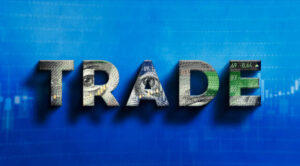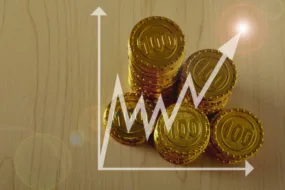Taxation and trade:

Imagine a world where filing taxes feels like a breeze and international trade runs like clockwork. That’s what the future of blockchain promises. This innovative technology is shaking things up in the financial sector, with significant implications for taxation and trade.
But what exactly is blockchain, and how does it work? Let’s break it down.
Understanding Blockchain: The Distributed Ledger Changing Taxation and Trade
Imagine a massive digital ledger that is accessible to all users on a network. That’s essentially blockchain. Each page in this book contains a record of a transaction, securely encrypted and tamper-proof. Every time a new transaction occurs, it’s added to a new page, creating a permanent and transparent chain of events.
Here’s the magic: No single entity controls this record book. Everyone on the network has a copy, ensuring data integrity and eliminating the possibility of manipulation.
Read More: How Distributed Ledgers Impact the Environment
How is the blockchain revolutionising taxation?

Tax season. Just the word sends shivers down many spines. But what if blockchain could transform this dreaded exercise into a smooth and efficient process? Here’s how:
i. Automated Tax Collection and Reporting: Imagine a system where your income and tax deductions are automatically recorded on a secure blockchain ledger. Tax authorities would have real-time access to this information, reducing errors and simplifying audits.
ii. Reduced Fraud and Evasion: With a transparent record of transactions, tax evasion becomes much harder. Blockchain can track income sources, making it easier for authorities to identify discrepancies.
iii. Simplified Compliance: Businesses and individuals could spend less time grappling with complex tax codes. Blockchain’s automation and transparency could significantly reduce the administrative burden of tax compliance.
How is blockchain revolutionising trade?
International trade can be a labyrinth of paperwork and red tape. Delays, disputes, and fraud are all too common. Here’s how blockchain can revolutionise global trade:
i. Smart Contracts: Self-Executing Agreements: Imagine contracts that execute themselves automatically when pre-determined conditions are met. Blockchain’s smart contracts can streamline trade processes, eliminating the need for intermediaries and reducing delays.
ii. Enhanced Tracking and Traceability: Blockchain can track goods throughout the supply chain, from origin to destination. This transparency provides valuable insights for businesses and ensures the authenticity of products for consumers.
iii. Reduced costs and errors: With fewer manual processes and paperwork, trade becomes more efficient. Blockchain can significantly reduce the costs associated with international trade and minimise the risk of human error.
What are blockchain’s specific applications in taxation and trade?

That’s a great question! In the blog post, we discussed the broader benefits of blockchain in taxation and trade. Let’s now explore some specific applications:
a. Taxation:
Imagine software that uses blockchain to automatically calculate your taxes based on real-time data from your bank accounts and investment platforms.
i. Crypto tax reporting: With the rise of cryptocurrencies, there’s a growing need for streamlined reporting of crypto gains and losses for tax purposes. Blockchain can provide a secure and transparent audit trail for all crypto transactions, simplifying tax compliance for crypto investors.
ii. Tax credit and deduction verification: Blockchain can be used to verify the legitimacy of tax credits and deductions, reducing fraud and administrative burdens for tax authorities.
b. Trade:
i. Trade finance platforms: Blockchain-based platforms can connect lenders and borrowers for trade finance securely and efficiently. This can reduce the costs and paperwork associated with traditional trade finance methods.
ii. Supply chain management: By tracking goods through the supply chain on a blockchain, businesses can ensure transparency, identify potential bottlenecks, and improve efficiency. This can also help prevent the circulation of counterfeit goods.
iii. Customs clearance: By providing a secure platform for sharing trade documents and verifying cargo information, blockchain can automate customs clearance processes. This can significantly reduce clearance times and associated costs.
These are just a few examples, and as blockchain technology matures, we can expect even more innovative applications to emerge in the realm of taxation and trade.
Read More: Unveiling Blockchain’s Role in the Real Estate Industry
Numbers Don’t Lie: The Impact of Blockchain on Taxation and Trade
i. According to a recent study by PwC, Blockchain technologies could boost the global economy by US $1.76 trillion by 2030 by raising levels of tracking, tracing and trust
ii. Another report by the IMF Blog said that crude estimates suggest that a 20 percent tax on capital gains from crypto would have raised about $100 billion worldwide amid soaring prices in 2021. That is about 4 per cent of global corporate income tax revenues or 0.4 per cent of total tax collection
These numbers paint a clear picture: blockchain has the potential to revolutionise both taxation and trade, creating a more efficient, transparent, and secure global financial landscape.
The Road Ahead: Challenges and Considerations

While blockchain offers tremendous potential, there are challenges to consider:
i. Scalability: Current blockchain platforms can struggle to handle large volumes of transactions.
ii. Regulation: Governments are still grappling with how to regulate this new technology effectively.
iii. Adoption: Widespread adoption of blockchain-based solutions requires collaboration between governments, businesses, and individuals.
However, continuous development and innovation are addressing these challenges. As scalability improves, regulations are developed, and more stakeholders embrace this technology, the transition to a blockchain-powered future for taxation and trade becomes increasingly realistic.
Read More: IPOs vs. ICOs: How Blockchain is Changing Fundraising
Conclusion:
The integration of blockchain technology into taxation and trade represents a paradigm shift in the way we conduct financial transactions and commerce. By enhancing transparency, efficiency, and security, blockchain is poised to revolutionise these critical domains, paving the way for a more equitable and sustainable global economy.
While challenges remain, advancements are happening rapidly. By embracing this transformative technology, we can create a more efficient, secure, and transparent financial system for all.










